Canada to pay $145 million compensation for homophobic persecution
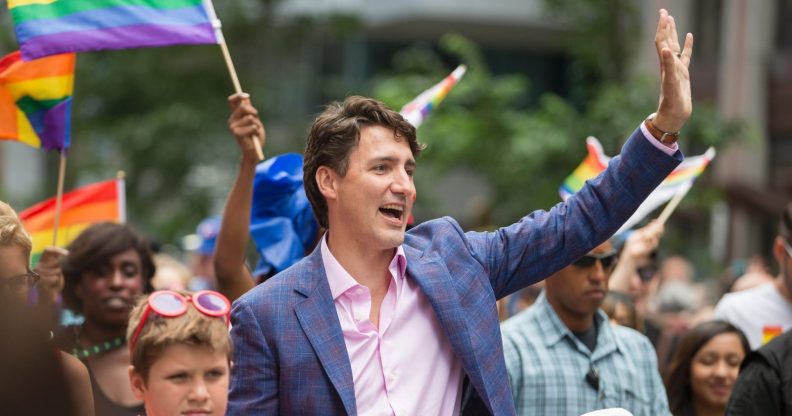
Prime Minister Justin Trudeau at the 2017 Pride Parade in Toronto. (GEOFF ROBINS/AFP/Getty)
Prime Minister Justin Trudeau at the 2017 Pride Parade in Toronto. (GEOFF ROBINS/AFP/Getty)
The Canadian government has set aside $145 million to settle compensation claims from people persecuted for being gay.
The country’s Prime Minister Justin Trudeau will today apologise for the country’s historic approach to the LGBT community, making a formal apology for purges that gay people endured for decades.
Mr Trudeau is also reportedly set to confirm that the government would set aside significant funding to pay compensation to people who were purged from public services for being gay.
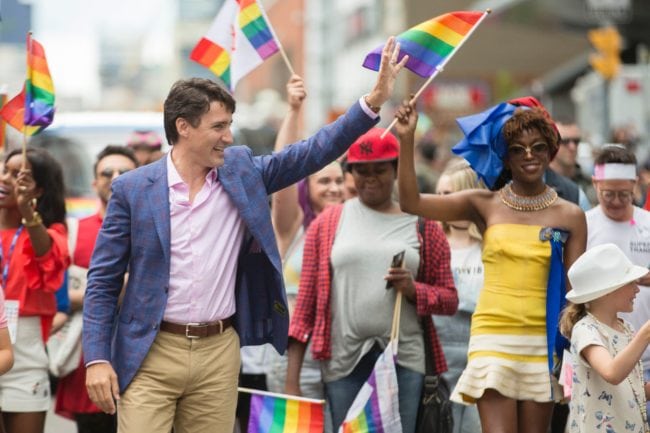
Getty
According to the Globe and Mail, the government will spend $145 million to compensate thousands of people who were purged from the public service because they were gay or lesbian.
The funding will be set aside as part of a class-action lawsuit settlement.
More than $100 million will be spent directly on compensation, while a further $250,000 will go towards community LGBT rights projects to tackle homophobia.
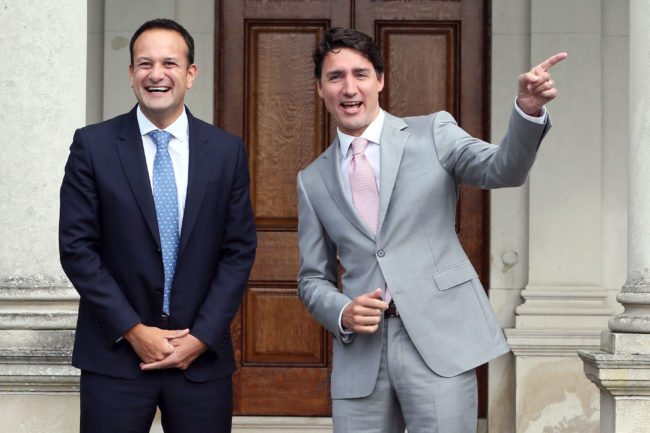
Getty
Speaking ahead of the formal announcement in Parliament, the PM said: “Apologies for things past are important to make sure that we actually understand and know and share and don’t repeat those mistakes.
“There is still so much discrimination that recognizing it will make a big difference, and it will also help a whole bunch of people who hopefully wouldn’t have to go through in their future careers the kind of discrimination that happened in the past decades.”
Canadian Prime Minister Justin Trudeau announced the government’s plan previously month on Twitter.
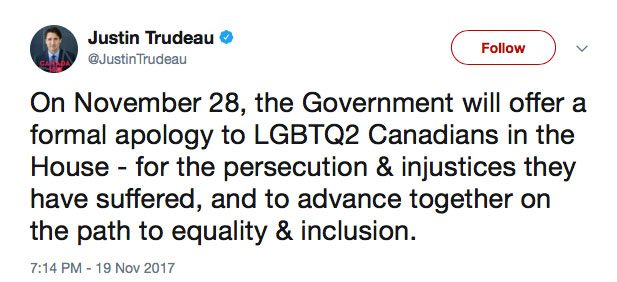
(Photo: @JustinTrudeau /Twitter)
Trudeau wrote: “On November 28, the Government will offer a formal apology to LGBTQ2 Canadians in the House – for the persecution & injustices they have suffered, and to advance together on the path to equality & inclusion.”
The apology will be given to the hundreds of LGBT+ Canadians who were discharged from the military or fired from the civil service.
A programme to root out gay and lesbian people was carried out until the late 60s, because it was a thought they posed a threat to national security.
Authorities used a creation called the Fruit Machine to supposedly identify homosexual people.
The discredited device, developed by a university in Ottawa, showed public servants and military personnel sexually explicit pictures and measured how they reacted.
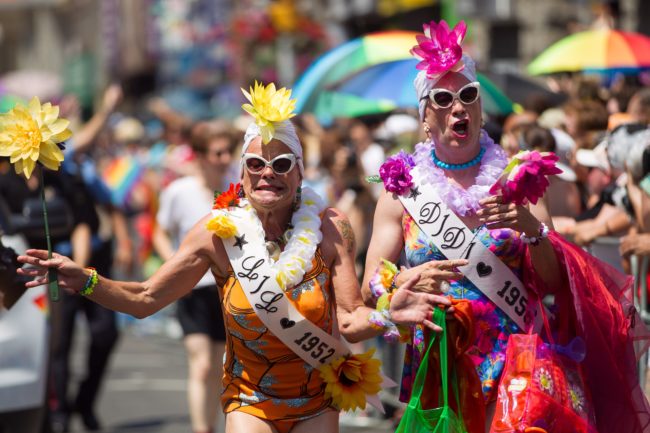
(Getty)
Earlier this year Justin Trudeau vowed to tackle historic LGBT injustices, saying: “Our government believes in equality and equal treatment for all Canadians.
“That is why we are moving forward on legislation that makes it possible to erase the convictions of Canadians who were unjustly convicted of a crime – simply for who they were, or who they loved.”
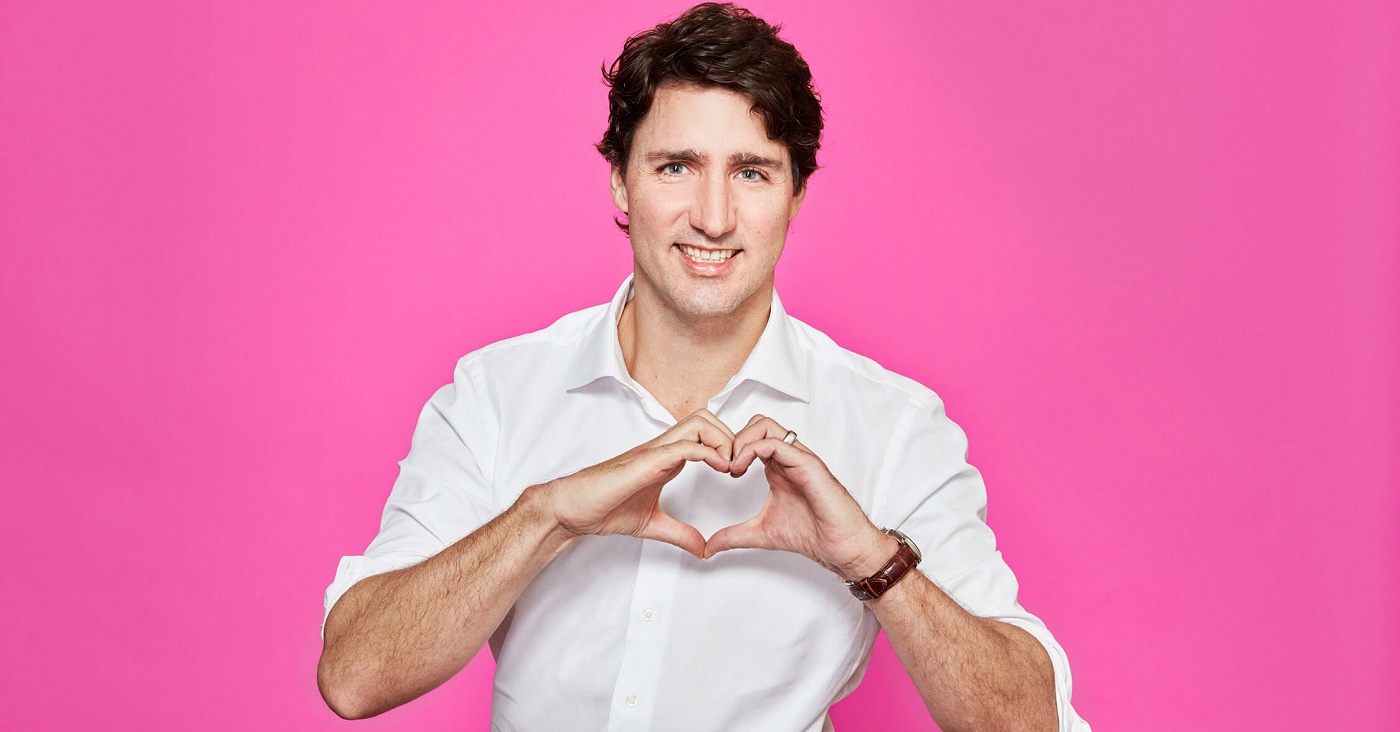
Trudeau continued: “We will be introducing legislation on this later this year, and further we will acknowledge and apologise for the historical discrimination faced by LGBTQ2 Canadians.
“We are committed to apologising in an inclusive and meaningful manner before the end of 2017.”
The expected apology follows several other governments apologising for historic offences committed against LGBT+ people, including the government of Scotland earlier this month.
The Scottish First Minister, Nicola Sturgeon, said in a moving speech: “Scotland has travelled so far in recent years in relation to LGBTI equality that it still shocks us to recall that as recently as 1980 — well within my lifetime — consensual sexual activity between men was still classed as a criminal activity in this country.
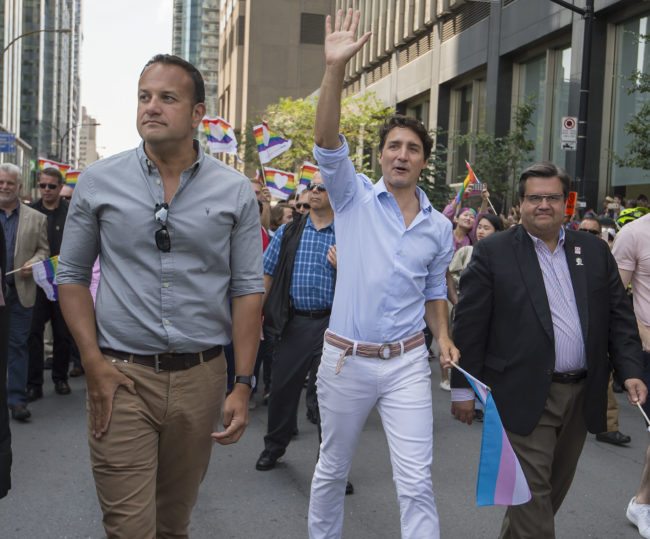
Getty
“Furthermore, the age of consent was lowered to 16 only in 2001, two years after this Parliament came into being. Before then, hundreds of people in Scotland were liable to be convicted as criminals simply for loving another adult.
“For people who were convicted of same-sex sexual activity that is now legal, the wrong has been committed by the state, not by the individuals—the wrong has been done to them.
“Those individuals therefore deserve an unqualified apology, as well as a pardon. That apology, of course, can come only from the Government and from Parliament. It cannot come from the justice system; after all, the courts, prosecutors and police were enforcing the law of the land, at the time.
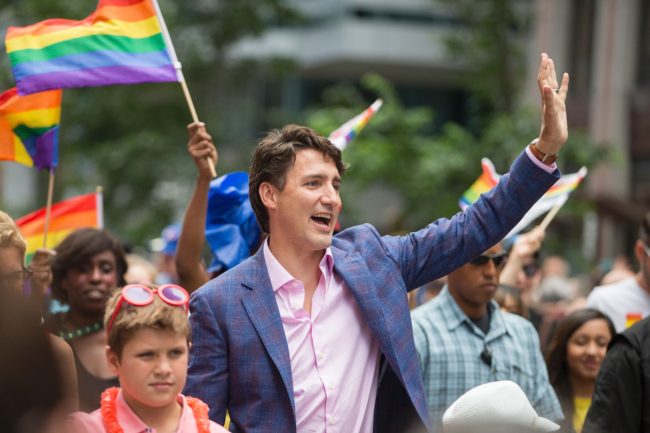
Getty
“The simple fact is that, over many decades, parliamentarians in Scotland supported, or at the very least accepted, laws that we now recognise were completely unjust. Those laws criminalised the act of loving another adult; they deterred people from being honest about their identities to family, friends, neighbours and colleagues; and, by sending a message from Parliament that homosexuality was wrong, they encouraged rather than deterred homophobia and hate.
“Therefore, today, as First Minister, I categorically, unequivocally and whole-heartedly apologise for those laws and for the hurt and the harm that they have caused to so many people. Nothing that Parliament does can erase those injustices, but I hope that this apology, alongside our new legislation, will provide some comfort to the people who have endured them. I hope that it provides evidence of this Parliament’s determination to address the harm that was done, as far as we can do so.”
Her apology followed a similar move from the UK government.
Canada’s government previously vowed to issue a sweeping apology for historic gay convictions, prompting hopes that this month’s apology will begin to heal historic rifts between the government and LGBT+ citizens.
The Canadian government has recently taken steps to be more inclusive towards LGBT+ people.
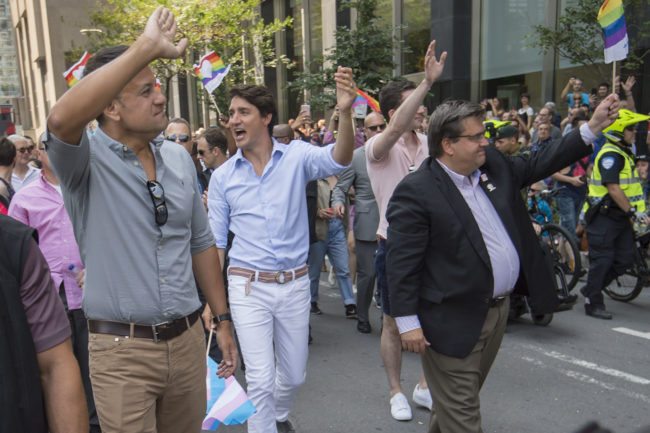
Photo: (PETER MCCABE/AFP/Getty Images)
This summer, the Canadian military focused on a rebranding effort in order to make the armed force more accepting for LGBT+ soldiers and potential recruits.
Canada recently made history by being one of the first countries to allow for a gender neutral ‘X’ marker on passports, replacing the ‘M’ or ‘F’ if a person wishes.
However, many LGBT+ Canadians are still disadvantaged, partially due to the existence of differing age of consent laws based on which sexual activity a person is doing.

